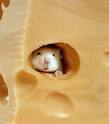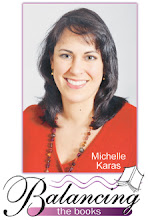Here are some environmentally-friendly tips any household can take advantage of. They are excerpted from “The Green Book” by Elizabeth Rogers and Thomas M. Kostigan. Three Rivers Press, 2007 (printed on 100 percent recycled paper):
•
Take a shorter shower. Every two minutes you save can conserve more than 10 gallons of water.
•
Set your thermostat a degree higher for air-conditioning and a degree lower for heating. You could save $100 per year on your utility bill. Keep adjusting and you’ll save even more.
•
Compost. Keep your kitchen scraps from fruits, vegetables and coffee grounds in a composting container. Try adding them to your garden or starting a compost site in your yard. You’ll grow a better garden, create deeper topsoil, recycle nutrients and save landfill space.
•
Don’t pre-rinse dishes. Run full loads in your dishwasher and save energy, and don’t pre-rinse dishes before putting them in. Do both and you’ll save up to 20 gallons of water per dish load, or 7,300 gallons over a year — that’s the same amount of water the average person drinks in a lifetime.
•
Clean the microwave. Keeping your microwave clean will maximize its energy. Microwaves are up to 4.8 times more energy efficient than traditional electric ovens. If it costs 10 cents to cook an item in the microwave, it would cost 48 cents to cook the same item in a standard oven.
•
Use glass containers. Instead of using plastic, store your food in glass or porcelain containers. Fewer chemicals will likely leach from the container into the food.
•
Water filters. Try installing water filters on your home faucet instead of buying bottled water. You can buy a walter filter for as little as $29 - about the same cost of a month of bottled water.
•
Rid yourself of junk mail. The average U.S. household received 1.5 trees’ worth of junk mail each year. To reduce the amount of junk mail you receive, visit
www.dmaconsumers.org/cgi/offmailing list
•
Light bulbs. Dust your light bulbs and change them to compact flourescent when they burn out. You’ll increase energy efficiency and light output.
•
Choose matches over lighters. Over 1.5 billion plastic lighters end up in landfills yearly. Cardboard matches, made from recycled paper, are a better choice than wood matches, which are made from trees.
•
Filters. Instead of having to replace your disposable air filter several times a year, consider buying a permanent one that can be washed and reused indefinitely.
•
Dry cleaning. Request no plastic bags, and return you paper hangers to the dry cleaners for recycling.
•
Get rid of lint. Clean your dryer lint screen, and don’t overload the dryer. You’ll save up to 5 percent on your electricity bill. Better yet: Use a clothesline when possible.
•
Wrap your water heater in an insulating blanket to store heat. Set the thermostat no higher than 120 degrees to conserve energy.
•
Wash your car in a commercial car wash. It is better for the environment than doing it yourself. Car washes use less water per wash — up to 100 gallons less — and often recycle and reuse rinse water.
•
Hoses. Fit your garden hose with an automatic shut-off nozzle. You’ll save up to 6.5 gallons per minute.
•
Lawn care. Cut your gras so it’s two inches high, and leave the clippings on the lawn. You’ll spend less time mowing and raking, and you won’t have to water your lawn as much.
•
Download music instead of buying CDs. The average price of a CD is about $15, while a downloaded album is about $10. Each month, more than 45 tons of CDs end up in landfills.
•
Soda. Buy from the fountain in a paper cup rather than from a can or plastic bottle. More paper (48 percent) is recycled than are cans (43.9 percent) or plastic soda bottles (25 percent).
•
Go high-speed. Faster Internet access saves time, and ultimately money and energy. Based on a full day’s use, you could save more htan $30 per year in energy costs by increasing your Internet efficiency and turning off your computer when it’s not in use.
•
Don’t take an ATM receipt. ATM receipts are one of the top sources of litter on the planet.
•
Direct deposit your paycheck. You will get your money faster and will reduce the time and fuel you used to get to the bank.
•
Pay bills online and sign up for paperless bank statements. Save postage and paper.
•
RECYCLE. We could decrease the amount of waste sent to landfills by 75 percent if everyone in America simply separated the paper, glass, and aluminum products from the trash and put them in the recycling bin. Currently, it takes an area the size of Pennsylvania to dump all of our waste each year.
To learn more about ways to save the environment, visit award-winning Senior Mercury reporter Evan Brandt's blog
The Thin Green Line.
To purchase "green gifts" including the book mentioned in this blog, visit
The Green PerspectiveLabels: book review, elizabeth rogers, environment, Evan Brandt, green, recycle, the green book, The Green Perspective, The Thin Green Line, thomas m. kostigan


 RSS
RSS


